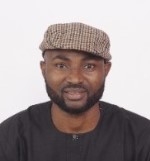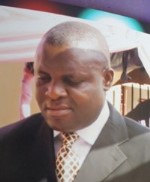and Energy Poverty: Challenges and Prospects
FEATURED PAPER
By Henry Ajaelu, PhD a and Reuben Okereke, PhD b
a Department of Quantity Surveying,
Enugu State University of Science and Technology, Enugu, Nigeria
b Department of Quantity Surveying,
Imo State University, Owerri, Imo State, Nigeria
Abstract
The global quest for sustainable development has dramatically increased in our modern times and this raises the issues of a sustainable economic development and growth. Therefore, sustainable energy has become one of the most promising means of handling the challenges of energy demand problems of many consumers worldwide. However, solar energy is a clean energy source and thus power generation through this energy source imposes little or no environmental hazards. Unlike most conventional source of power generation and even some renewables like wind energy technologies, PV technologies generate no noise though the inverter systems could produce a system humming noise which is normally absorbed by the domestic noise background. The research aim is to assess the problems and prospects of achieving sustainable energy in Nigeria through photo voltaic (PV) technology. Descriptive and correlation research design was used in this research work. The population of the study comprises of selected practitioners in top five (5) solar firms in Nigeria, such as Ecozar Technologies, Leks Environmental Ltd Lagos, Wavetra Energy Ltd Lagos, Solar Force Nigeria PLC Abuja, Astrum Energy Solutions Enugu. A sample of 136 respondents was randomly drawn from the population of the study using a purposive sampling procedure. Data was obtained through questionnaire survey. Oral interview was also used to get more information from the respondents. Questionnaires were distributed to the relevant staff in accordance with the sample size. The data analysis was carried out using multiple regression and correlation methods. The test was conducted at 0.05 level of significance. A computer software based multiple regression analysis called statistical program for social science (SPSS) version 21 was used in the data analysis. The study reveals that technical challenges and economic and financial challenges are the most striking barriers to sustainable energy in Nigeria. The study recommends that Nigerian Government should invest in the development of Nigerian made PV panels which will contribute to the Nations GDP and GNI. These panels will also be exported and foreign exchange will flow into Nigeria’s economy.
Keywords: Photo Voltaic, Solar Energy, Renewable Energy, Sustainable Energy
1.0 INTRODUCTION
Nigeria is endowed with significant renewable energy resources that includes large and small hydroelectric power resources, solar energy, biomass, wind, potential for hydrogen utilization and development of geothermal and ocean energy (Sambo, 2009). Renewable energy (RE) resources abound in Nigeria but have not been fully exploited. Nigeria is an energy resource rich country, endowed with abundance of renewable energy (RE) resources, providing her with great capacity to develop an effective national energy plan. However, Nigeria is yet to exploit these huge available energy potentials with less environmental and climatic impacts. On the contrary, the National energy supply is at present almost entirely dependent on fossil fuels and fuel-wood. These two are being depleted due to failure to harness other energy resources (Chigbo, 2010). Despite Nigeria’s steady access to fossil based and renewable energy sources, its per capita electricity has been among one of the lowest in Africa. As power demand studies have projected a medium- to long-term electricity demand of 30,000MW and 192,000MW respectively, there will need to be substantial improvement in the energy production and supply sector if this demand is to be met (Nnaji, 2010). The current installed capacity of grid electricity is about 6000MW, of which about 67 percent is thermal and the balance is hydro-based (Council for Renewable Energy, Nigeria (CREN), 2009). Hence, the urgent need to optimally harness the renewable energy potentials available in Nigeria for the benefit of her citizens and Africa in general. Non-conventional renewable energy is a key element in the overall strategy of the Federal Government of Nigeria in rapidly expanding access to electricity services in the country. Beyond large hydropower, the total contribution of renewable energy in Nigeria’s electricity industry is about 35MW composed of 30MW small hydropower and about 5MW solar PV. This represents about 0.06% of total electricity generating capacity in the country (Council for Renewable Energy, Nigeria (CREN), 2009). However all represents the motivation for this study.
More…
To read entire article, click here
How to cite this paper: Ajaelu, H. and Okereke, R. (2020). Assessment of Nigerian Renewable Energy Potentials and Energy Poverty: Challenges and Prospects; PM World Journal, Vol. IX, Issue VI, June. Available online at https://pmworldlibrary.net/wp-content/uploads/2020/05/pmwj94-Jun2020-Ajaelu-Okereke-assessment-of-nigerian-renewable-energy.pdf
About the Authors

Henry Chidiebere Ajaelu, PhD
Enugu, Nigeria
![]()
Henry Chidiebere Ajaelu, PhD in Environmental Management and Control, MSc Facility Management, BSc Quantity Surveying and also PhD Quantity Surveying (in View). His works as an Academic Technologist in the Department of Urban and Regional Planning, Enugu University of Science and Technology (ESUT), Nigeria, a member of Nigerian Meteorological Society and Nigerian Institute of Quantity Surveying. Email: mail@ajahigh.com.ng, ajaelu.henry@esut.edu.ng

Dr. Reuben A. Okereke
Owerri, Nigeria
![]()
Q.S. Dr. Reuben A. Okereke, PhD QS & Sust. Dev., MSc. Const. Mgt., MSc. Env. Res. Mgt., FRQS, FIIA, FAPM, ACArb, CIPM, MAACEI., is a multi-talented and erudite scholar. A versatile professional with academic qualifications in Quantity Surveying, Project Management, Construction Management and Environmental Resource Management. His Quantity Surveying professional experience of almost three decades spans through his employment with consultancy and construction firms in Lagos, Nigeria, work as Project Manager in the Bank for eight years, services as in-house consultant Quantity Surveyor for several years for the Imo State University Owerri, Nigeria, experience as Consultant Quantity Surveyor in private practice as well as several years of teaching in both the University and Polytechnic. He is currently serving his second term as the head of department of Quantity Surveying, Imo State University, Owerri, Nigeria. He can be contacted at raphicaben2013@gmail.com









